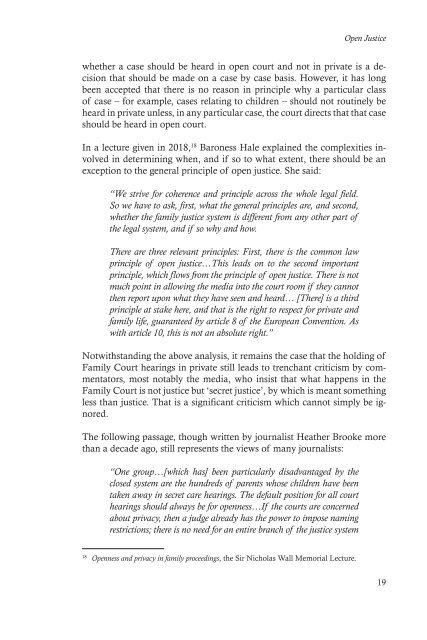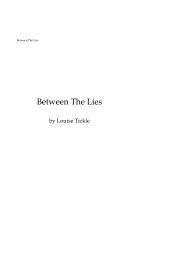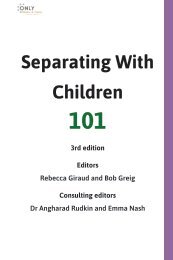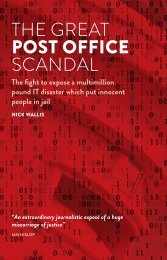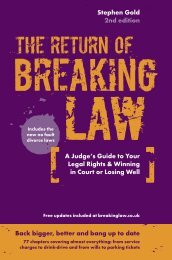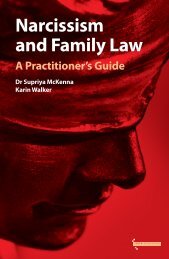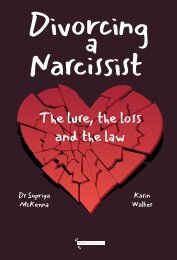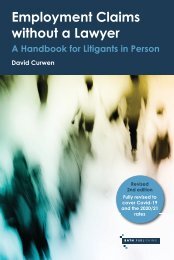The 'Secret' Family Court: Fact Or Fiction?
For approaching two decades, family courts have been accused of making life changing decisions about children and who they live with made in secret, away from the scrutiny of the public gaze. Recognising the force of these accusations, senior family courts judges have, over that time, implemented a raft of rule changes, pilot projects and judicial guidance aimed at making the family justice more accountable and transparent. But has any progress been made? Are there still suspicions that family judges make irrevocable, unaccountable decisions in private hearings? And if so, are those suspicions justified and what can be done to dispel them? In this important and timely new book, Clifford Bellamy, a recently retired family judge who has been at the sharp end of family justice during all these changes, attempts to answer those questions and more. He has spoken to leading journalists, judges and academic researchers to find out what the obstacles to open reporting are – be they legal, economic or cultural - and interweaves their insights with informed analysis on how the laws regulating family court reporting operate. Along the way he provides a comprehensive review of the raft of initiatives he has seen come and go, summarises the position now and uses this experience to suggest how this fundamental aspect of our justice system could adapt in the face of this criticism. Every professional working in the family justice system – lawyers, social workers, court staff and judges - as well as those who job it is to report on legal affairs, should read this informative, nuanced exposition of what open justice means and why it matters so much to those whose lives are upended by the family justice system.
For approaching two decades, family courts have been accused of making life changing decisions about children and who they live with made in secret, away from the scrutiny of the public gaze. Recognising the force of these accusations, senior family courts judges have, over that time, implemented a raft of rule changes, pilot projects and judicial guidance aimed at making the family justice more accountable and transparent.
But has any progress been made? Are there still suspicions that family judges make irrevocable, unaccountable decisions in private hearings? And if so, are those suspicions justified and what can be done to dispel them?
In this important and timely new book, Clifford Bellamy, a recently retired family judge who has been at the sharp end of family justice during all these changes, attempts to answer those questions and more. He has spoken to leading journalists, judges and academic researchers to find out what the obstacles to open reporting are – be they legal, economic or cultural - and interweaves their insights with informed analysis on how the laws regulating family court reporting operate. Along the way he provides a comprehensive review of the raft of initiatives he has seen come and go, summarises the position now and uses this experience to suggest how this fundamental aspect of our justice system could adapt in the face of this criticism.
Every professional working in the family justice system – lawyers, social workers, court staff and judges - as well as those who job it is to report on legal affairs, should read this informative, nuanced exposition of what open justice means and why it matters so much to those whose lives are upended by the family justice system.
Create successful ePaper yourself
Turn your PDF publications into a flip-book with our unique Google optimized e-Paper software.
Open Justice<br />
whether a case should be heard in open court and not in private is a decision<br />
that should be made on a case by case basis. However, it has long<br />
been accepted that there is no reason in principle why a particular class<br />
of case – for example, cases relating to children – should not routinely be<br />
heard in private unless, in any particular case, the court directs that that case<br />
should be heard in open court.<br />
In a lecture given in 2018, 18 Baroness Hale explained the complexities involved<br />
in determining when, and if so to what extent, there should be an<br />
exception to the general principle of open justice. She said:<br />
“We strive for coherence and principle across the whole legal field.<br />
So we have to ask, first, what the general principles are, and second,<br />
whether the family justice system is different from any other part of<br />
the legal system, and if so why and how.<br />
<strong>The</strong>re are three relevant principles: First, there is the common law<br />
principle of open justice…This leads on to the second important<br />
principle, which flows from the principle of open justice. <strong>The</strong>re is not<br />
much point in allowing the media into the court room if they cannot<br />
then report upon what they have seen and heard… [<strong>The</strong>re] is a third<br />
principle at stake here, and that is the right to respect for private and<br />
family life, guaranteed by article 8 of the European Convention. As<br />
with article 10, this is not an absolute right.”<br />
Notwithstanding the above analysis, it remains the case that the holding of<br />
<strong>Family</strong> <strong>Court</strong> hearings in private still leads to trenchant criticism by commentators,<br />
most notably the media, who insist that what happens in the<br />
<strong>Family</strong> <strong>Court</strong> is not justice but ‘secret justice’, by which is meant something<br />
less than justice. That is a significant criticism which cannot simply be ignored.<br />
<strong>The</strong> following passage, though written by journalist Heather Brooke more<br />
than a decade ago, still represents the views of many journalists:<br />
“One group…[which has] been particularly disadvantaged by the<br />
closed system are the hundreds of parents whose children have been<br />
taken away in secret care hearings. <strong>The</strong> default position for all court<br />
hearings should always be for openness…If the courts are concerned<br />
about privacy, then a judge already has the power to impose naming<br />
restrictions; there is no need for an entire branch of the justice system<br />
18<br />
Openness and privacy in family proceedings, the Sir Nicholas Wall Memorial Lecture.<br />
19


